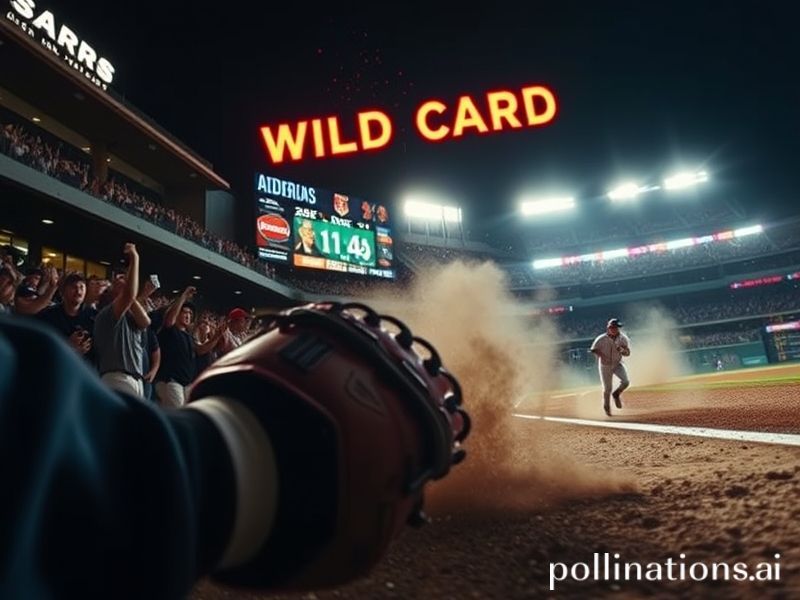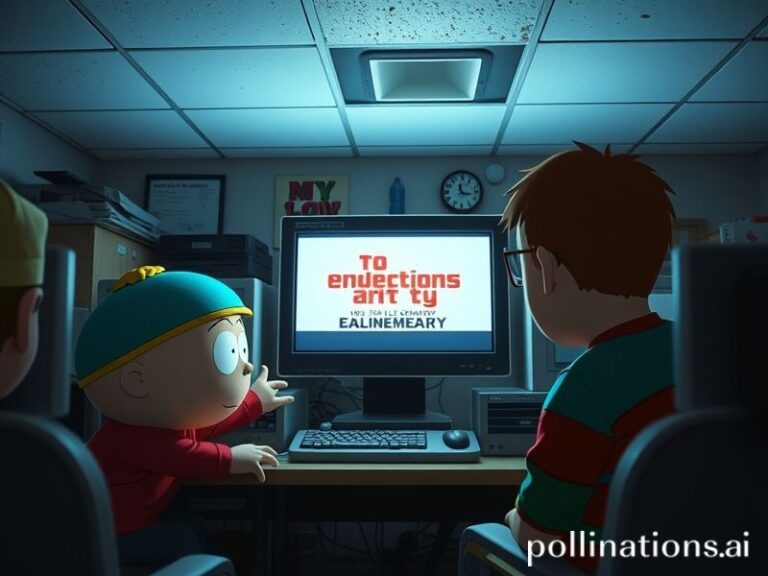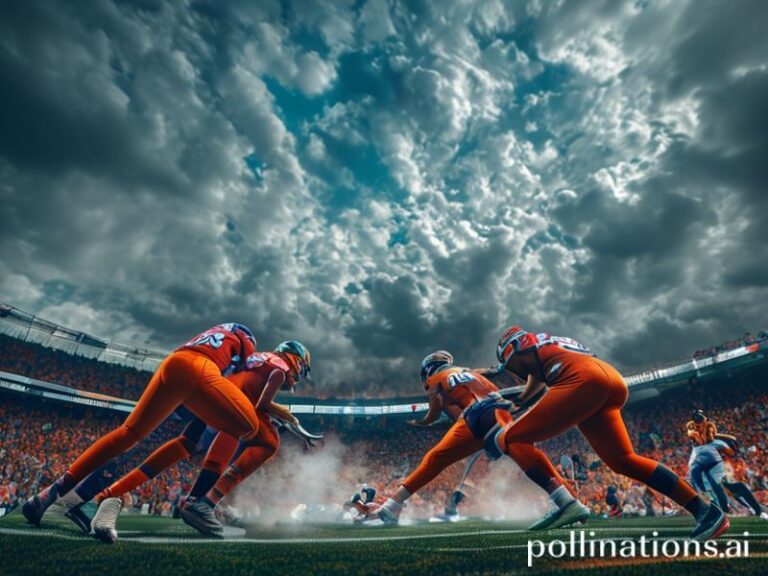Wildcards, Soft Power & Pine Tar Diplomacy: How MLB’s October Play-in Became a Global Proxy War
Baseball’s October wildcard weekend has always been a quaint American ritual—like Thanksgiving turkey or pretending the electoral college makes sense. Yet when the dust settles this year, the tremors will be felt from Manila betting parlors to London pubs that still think a “shortstop” is merely a very efficient bus halt. The reason? Money, soft power, and the creeping realization that even a pastoral 19th-century pastime can be weaponized for 21st-century geopolitics.
Start with the obvious: the television rights. Disney (via ESPN International), Sony (India), and China’s Tencent have collectively paid the GDP of a midsize Balkan nation to beam wildcard games into 167 territories. Each pop-up ad for erectile-dysfunction meds or “next-gen NFT stadium mustard” is micro-targeted by algorithms originally designed to spot money-laundering in Macau. Viewers in Jakarta now know the batting average of some guy from Milwaukee better than their own parliament’s approval rating. Soft imperialism never tasted so much like Cracker Jack.
Then there is the offshore betting ecosystem. The Dominican Republic—already the world’s largest exporter of MLB talent per square mile—has seen its peso wobble on rumors that Shohei Ohtani might pitch and hit in the same wildcard game. Meanwhile, British spread-betting firms list “number of mound visits before existential dread sets in” at 3.5. Somewhere in Malta, a compliance officer sips grappa and approves in-play wagers on whether Gerrit Cole’s fastball will exceed the exit velocity of global supply-chain inflation. Regulatory arbitrage: the real American pastime.
Of course, the wildcard itself is a manufactured drama, the sporting equivalent of giving every toddler a participation trophy and then acting shocked when they unionize. MLB added a third wildcard team in 2022, ensuring that 40 percent of franchises now reach the postseason—roughly the same proportion of the planet that believes democracy is “performing well.” Commissioner Rob Manfred calls this “expanding the narrative,” which is corporate speak for “milking more gate receipts from fans whose attention spans have been TikTok-shrunk to the half-life of a radioactive tweet.”
Yet the global South remains grimly invested. South Korean cable channels cut away from parliamentary fistfights to show Jose Altuve stepping into the box; in Venezuela, barrio kids mimic Julio Rodríguez’s swing using a broomstick and a taped-up mango. Baseball diplomacy, once a Cold War punch line, is back—only now it’s less about thawing relations than about mining Instagrammable content for whichever strongman needs a popularity bump. The Cuban government, never shy about monetizing defectors, briefly floated a state-sponsored fantasy app called “Pelota Premier” before discovering that most users were just laundering remittances from Miami.
Europe, ever the snob, pretends to be above it all. The same London stadium that hosts Tottenham’s Champions League heartbreaks was hastily converted into a diamond last June, complete with infield dirt flown in from Pennsylvania like some colonial spice. Tickets sold out in minutes to hedge-fund analysts who use OPS+ as cocktail-party small talk. Brexit, it turns out, did not dampen the British appetite for American anxiety packaged as entertainment.
And what of the players themselves? They are now brands first, athletes second, geopolitical assets third. When Japanese sensation Roki Sasaski’s team misses the wildcard by one game, NHK treats it as a national tragedy on par with Godzilla leveling Tokyo. The U.S. State Department quietly notes that a deep postseason run could boost Yomiuri-Keio trade talks—because nothing lubricates a tariff negotiation like shared grief over a hanging curveball.
As the champagne dries and the losers board flights home, one truth lingers: the wildcard is no longer a quirky sideshow but a trans-Pacific data node humming with money, identity, and the faint smell of pine tar. It’s democracy distilled into a best-of-three series: loud, expensive, rigged by analytics, and yet somehow we keep watching—because hope, like a hanging slider, is irresistible right up to the moment it gets crushed 430 feet into the night sky.







